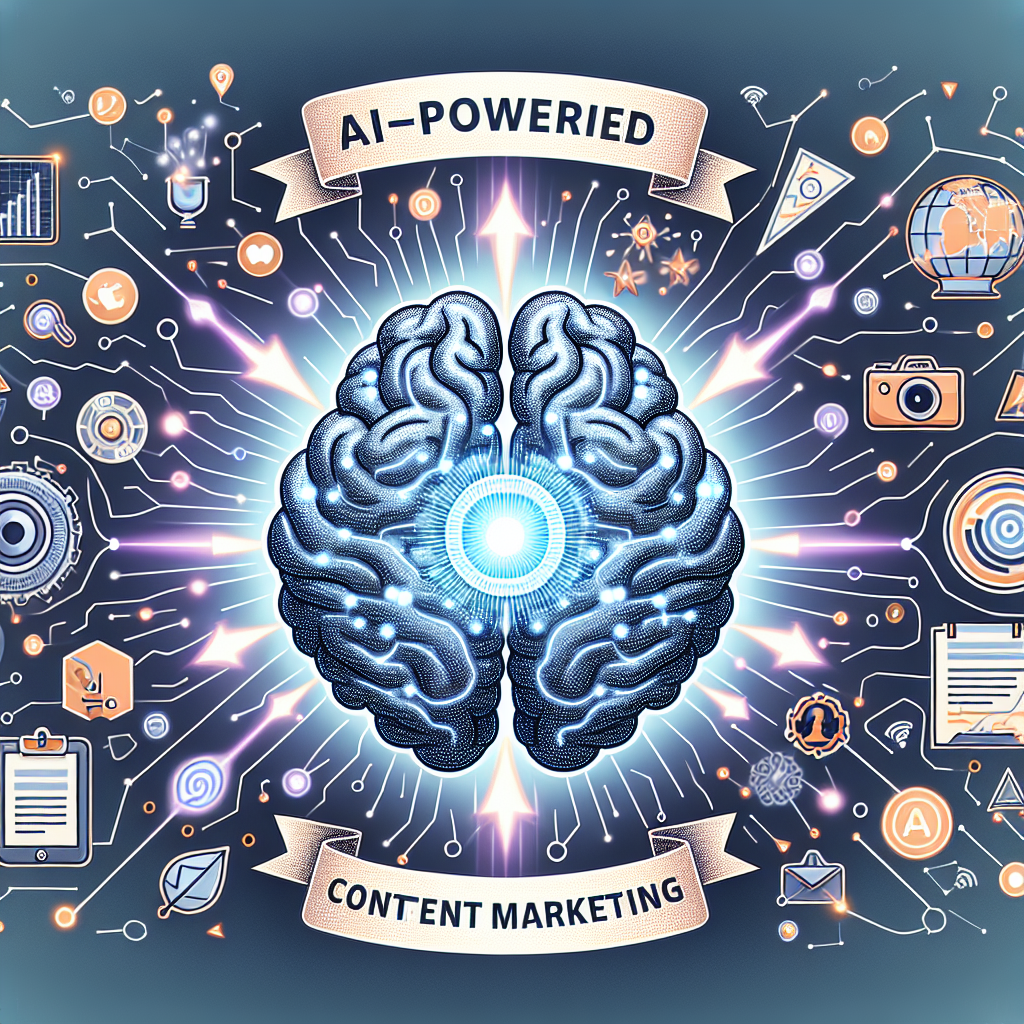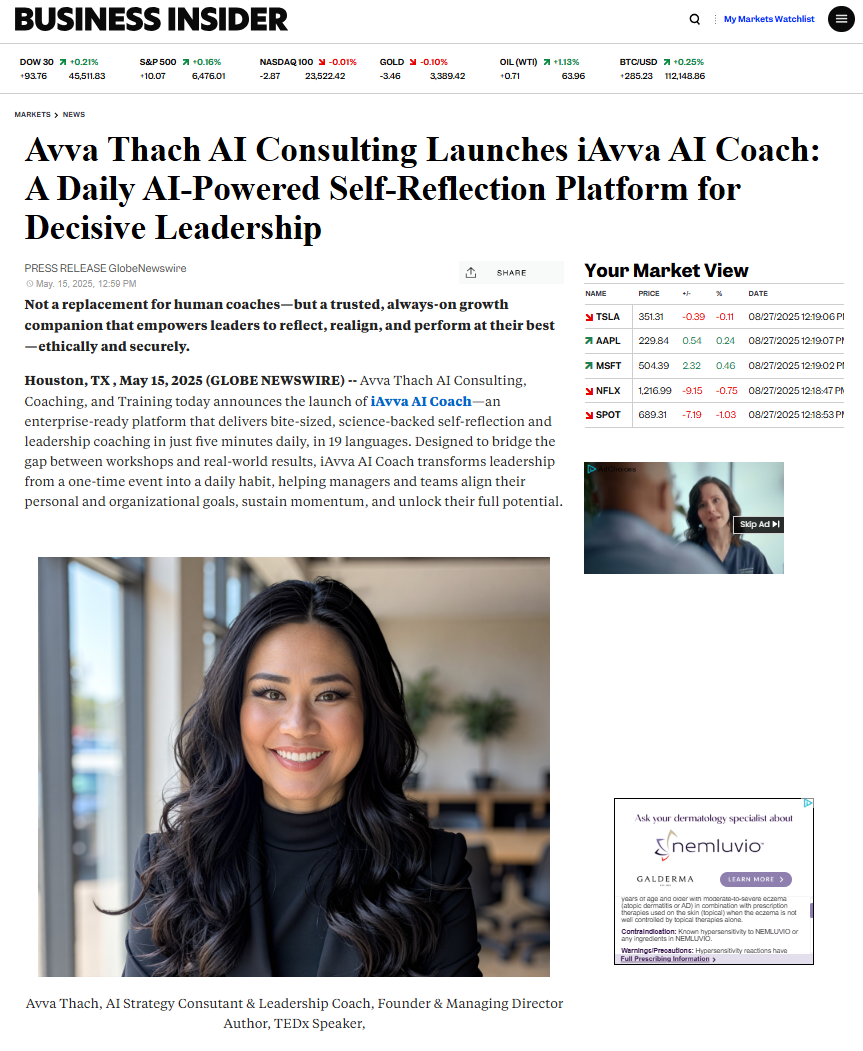Digital Transformation: A Step-by-Step Roadmap for Business Leaders
Introduction
Welcome to the digital age, where businesses are no longer just brick-and-mortar establishments, but vibrant ecosystems thriving on data, technology, and innovation. As we embark on this journey of digital transformation, it’s essential to recognize that this isn’t merely a tech upgrade; it’s a complete overhaul of how we operate, engage with customers, and deliver value.
The global digital transformation market is projected to soar from approximately 1 billion in 2021 to a whopping .25 trillion by 2026, according to Markets and Markets. This staggering growth highlights the urgency for businesses to adapt or risk being left behind in the digital dust.
But before you dive headfirst into adopting shiny new technologies, let’s take a step back. Understanding the nuances of digital transformation consulting is crucial. It’s like hiring a skilled navigator before setting sail on uncharted waters. You wouldn’t want to be adrift without a map, would you?
In this blog post, we’ll guide you through a step-by-step roadmap tailored for business leaders looking to embrace digital change effectively. From assessing your current state to defining your digital transformation strategy and implementing technology solutions, we’ve got you covered.
So grab your virtual toolkit and get ready! Whether you’re in HR, organizational development, or leading an AI transformation initiative, there’s something here for everyone. Let’s embark on this exciting adventure together!

Understanding Digital Transformation
Digital transformation is not just a buzzword; it’s the heartbeat of modern business evolution. In essence, it refers to the integration of digital technology into all areas of a business, fundamentally changing how you operate and deliver value to customers. Think of it as upgrading from a flip phone to the latest smartphone it’s not just about having new gadgets; it’s about enhancing your entire experience.
A staggering 93% of companies are currently navigating some form of digital transformation, according to the International Data Corporation.
Definition and Importance
The importance of digital transformation lies in its ability to help organizations stay competitive in a rapidly evolving landscape. It’s about leveraging technology like cloud solutions, data analytics, and AI to create more efficient processes and enhance customer experiences. Simply put, if you’re not transforming digitally, you’re likely falling behind.
Key Drivers of Digital Transformation
- Customer Expectations: Today’s consumers demand seamless interactions and personalized experiences.
- Technological Advancements: Innovations like AI and IoT are reshaping possibilities for businesses.
- Competitive Pressure: Companies must adapt or risk losing market share to more agile competitors.
- Operational Efficiency: Automation and data analytics can streamline operations, reduce costs, and improve service delivery.
Common Challenges Faced by Organizations
While embarking on this journey can be thrilling, it’s not without its hurdles. Here are some common challenges organizations face during their digital transformation efforts:
- Siloed Departments: Lack of collaboration can lead to fragmented initiatives that don’t align with overall goals.
- Skill Gaps: Your workforce needs training to effectively use new technologies; otherwise, you may end up with fancy tools that no one knows how to operate.
- Resistance to Change: Cultural inertia can stifle innovation getting buy-in from all levels is crucial!
- Lack of Clear Strategy: Without a solid digital transformation strategy in place, even significant investments may yield disappointing results.
Navigating these challenges is where digital transformation consulting comes into play. With expert guidance from consultants who specialize in areas such as IT transformation consulting or organizational transformation consulting, businesses can craft tailored strategies that address their unique needs while avoiding common pitfalls. So buckle up your journey toward becoming a tech-driven powerhouse starts now!
The Role of Digital Transformation Consulting
In the fast-paced world of business, digital transformation consulting has emerged as the guiding star for organizations navigating the murky waters of change. But what exactly does this entail? Let’s dive into the nitty-gritty!
What is Digital Transformation Consulting?
At its core, digital transformation consulting involves partnering with experts to reshape your business through technology and innovation. Think of it as hiring a personal trainer for your company except instead of getting fit, you’re getting digitally savvy! These consultants offer a range of digital transformation services, from crafting a robust digital business strategy to implementing cutting-edge solutions like AI and IoT integration.
Benefits of Engaging with a Consultant
- Expertise on Demand: Consultants bring specialized knowledge that can save you time and resources. They’ve seen what works and what doesn’t.
- Tailored Strategies: Forget cookie-cutter solutions! A good consultant will customize a plan that aligns with your unique business goals.
- Avoiding Pitfalls: With their experience, consultants can help you sidestep common mistakes that often derail digital initiatives.
- Enhanced Agility: They’ll help you cultivate an agile mindset across teams, making it easier to adapt to rapid changes in technology and market demands.
Did You Know?
A staggering 93% of companies are currently in the midst of digital transformation (International Data Corporation). This highlights the urgency for businesses to embrace change or risk being left behind!
How to Choose the Right Consulting Partner
Selecting the right partner for your digital journey is crucial. Here are some key considerations:
- Industry Experience: Look for consultants who have successfully guided businesses in your sector. Their insights can be invaluable!
- Diverse Skill Sets: Ensure they offer comprehensive services from IT transformation consulting to process automation consulting to cover all bases.
- Cultural Fit: Aligning values and working styles can make or break your collaboration. Choose someone who resonates with your team’s ethos.
- Proven Track Record: Request case studies or testimonials that demonstrate their ability to drive results.

The role of digital transformation consulting cannot be overstated. It’s not just about implementing new technologies; it’s about creating an environment where innovation flourishes and employees feel empowered to thrive in a tech-driven world. So, if you’re ready to embark on this journey, consider bringing in a trusted partner who can guide you every step of the way!
Step 1: Assessing Your Current State
Before you can leap into the thrilling world of digital transformation consulting, it’s essential to take a good, hard look at where you currently stand. Think of this as your digital health check-up no one wants to start a marathon without knowing their fitness level, right?
Here’s how to kick off this crucial first step:
Conducting a Digital Maturity Assessment
The first order of business is to conduct a digital maturity assessment. This process helps you gauge your organization’s current capabilities and readiness for digital change. It’s like checking your pulse before deciding to run a marathon. You’ll want to evaluate:
- Your existing technology stack
- The skills and competencies of your workforce
- Your organizational culture’s openness to change
Identifying Legacy Systems and Gaps in Technology
Next up, it’s time for some detective work. Identify any legacy systems that are holding your business back think of them as the old flip phones in a world filled with smartphones. Are there gaps in technology that could be bridged with modern solutions? This is where engaging with expert digital transformation services can shine. They help pinpoint what needs upgrading or replacing.
Understanding Organizational Readiness for Change
No one wants to be the lone wolf howling at the moon during a transformation. Understanding your team’s readiness for change is crucial. Are they excited about new technologies, or are they clinging to outdated processes like a toddler refusing to give up their favorite blanket?
- A survey found that 75% of companies believe effective training is essential for successful digital transformation (PwC).
- 68% of leaders recognize that integrating AI strategies significantly boosts transformation effectiveness (HBR).
This step isn’t just about gathering data; it’s about weaving together insights that will inform your entire digital business strategy going forward. Once you have this foundational understanding, you’re ready to craft an actionable plan that aligns with your goals.
Takeaway: Assessing your current state is not just the first step; it’s the cornerstone of effective digital transformation consulting. By understanding where you are today, you can set clear objectives for where you want to go tomorrow.
If you’re ready to dive deeper into defining your strategy based on these insights, stay tuned for Step 2!
Step 2: Defining Your Digital Transformation Strategy
Now that you’ve assessed your current state, it’s time to roll up your sleeves and dive into the nitty-gritty of crafting a digital transformation strategy. This isn’t just a fancy term for “let’s adopt some new tech” it’s about creating a comprehensive plan that aligns with your business goals and sets you on the path to success.
Setting Clear Objectives and KPIs
First things first, you need to define what success looks like. Without clear objectives, your digital transformation efforts could end up like a ship without a rudder adrift and aimless. Consider these points:
- SMART Goals: Make sure your objectives are Specific, Measurable, Achievable, Relevant, and Time-bound.
- KPI Development: Identify Key Performance Indicators that will help you track progress. Think of them as the speedometer on your digital transformation journey.
- Stakeholder Engagement: Involve key stakeholders early in the process to ensure buy-in and alignment across the organization.
Creating a Comprehensive Digital Roadmap Development Plan
Your roadmap is essentially your GPS for navigating this complex landscape of digital change. Here’s how to build it:
- Phase Identification: Break down the transformation into manageable phases. This makes it easier to tackle challenges without feeling overwhelmed.
- Resource Allocation: Determine what resources (time, budget, personnel) are needed at each stage. Think of this as packing for a road trip you don’t want to run out of snacks halfway there!
- Technology Integration: Identify which technologies (like AI-driven business solutions or cloud migration services) will be pivotal in achieving your goals. This is where tech-driven transformation magic happens!
Did You Know?
A staggering 93% of companies are currently undergoing some form of digital transformation (International Data Corporation). Don’t get left behind!
Your digital transformation strategy won’t succeed in isolation; it requires collaboration across all levels of your organization. Here’s how to ensure everyone is on board:
- Cross-Functional Teams: Form teams from different departments to foster collaboration and innovation.
- Regular Check-Ins: Schedule frequent meetings to discuss progress and address any roadblocks together.
- Cultural Shift: Encourage an agile mindset throughout the organization this isn’t just an IT project; it’s an organizational transformation!

The key takeaway here? A well-defined digital transformation strategy is not just about technology; it’s about aligning people, processes, and goals. So grab those markers, gather your team, and start sketching out that roadmap! If you’re feeling stuck or overwhelmed by the process, remember: engaging with expert digital transformation consulting can provide invaluable insights tailored specifically for your organization.
Step 3: Implementing Technology Solutions
Welcome to the techie playground, where your digital transformation strategy comes to life! This step is all about rolling up your sleeves and diving into the nitty-gritty of technology solutions. Think of it as assembling a puzzle where each piece represents a different aspect of your digital transformation consulting journey.
Selecting Appropriate Technology Consulting Services
The first order of business? Finding the right technology consulting services that align with your goals. Not all consultants are created equal some specialize in IT transformation consulting, while others focus on cloud migration services or data analytics consulting. Do your homework! Here’s a quick checklist:
- Assess their expertise in relevant technologies.
- Check their track record in enterprise digital transformation.
- Evaluate their approach to cyber security consulting services.
Integrating AI-Driven Business Solutions and IoT Services
Next up, let’s talk about the cool stuff AI and IoT! Integrating AI-driven business solutions can supercharge your operations, making processes smarter and faster. Imagine having a virtual assistant who never sleeps, analyzing data and providing insights in real-time. Plus, with IoT integration services, you can connect devices across your organization for seamless data flow. Here’s how you can approach this:
- Identify key areas where AI can add value think customer experience transformation or operational excellence.
- Explore partnerships with advanced analytics solutions consultancy firms for tailored insights.
- Test pilot projects before full-scale implementation to ensure everything runs smoothly.
Migrating to Cloud Infrastructure and Modernizing Legacy Systems
If you’re still clinging to those legacy systems like they’re an old childhood blanket, it’s time for a makeover! Migrating to cloud infrastructure isn’t just trendy; it’s essential for scalability and flexibility. Here are some strategies for successful migration:
- Create a phased migration plan: Transition gradually rather than going all-in at once.
- Invest in legacy system modernization: Update outdated systems to integrate seamlessly with new technologies.
- Utilize cloud transformation consulting: Seek expert advice on best practices for cloud adoption.
This step is where the magic happens! By implementing these technology solutions effectively, you’re not just keeping up with trends; you’re paving the way for sustainable growth and innovation within your organization. Remember, it’s all about creating a tech-driven transformation that aligns with your overall business objectives!
Step 4: Change Management and Workforce Transformation
Welcome to the heart of digital transformation consulting, where the rubber meets the road! Change management and workforce transformation are not just buzzwords; they are crucial elements that can make or break your digital transformation strategy.
The Importance of Digital Change Management Strategies
Imagine trying to navigate a ship through a storm without a compass. That’s what implementing new technologies feels like without a solid change management strategy. Digital change management is essential for guiding your organization through the turbulent waters of transformation. It’s about ensuring that everyone is on board and understands why these changes are necessary.
Training and Upskilling Employees for New Technologies
Your workforce is your greatest asset, and investing in their skills is like watering a garden without it, nothing will grow! Training programs should be tailored to equip employees with the skills needed for new technologies, from cloud migration services to AI-driven business solutions. Here’s how you can approach this:
- Assess skill gaps through a digital maturity assessment.
- Create customized training modules focusing on specific technologies relevant to your organization.
- Encourage continuous learning by providing access to online courses and workshops.
Cultivating an Agile Mindset Across Teams
An agile mindset is more than just adopting new tools; it’s about fostering a culture of flexibility and responsiveness. Think of it as teaching your team to dance instead of just following steps they need to adapt to the rhythm of change!
- Encourage collaboration across departments by breaking down silos.
- Implement agile transformation services that promote iterative processes and rapid feedback loops.
- Create cross-functional teams that can tackle projects from multiple angles, enhancing creativity and innovation.

In summary, effective change management and workforce transformation are vital for successful digital transformation. By prioritizing these elements, you’ll not only enhance employee engagement but also drive operational excellence across your organization.
Ready to transform your workforce? Engage with Avva Thach AI Consulting Services today for tailored solutions that empower your team through this exciting journey!
Step 5: Measuring Success and Continuous Improvement
Alright, you’ve made the leap into the digital realm! But how do you know if you’re soaring or just hovering? This is where measuring success and continuous improvement come into play. Think of it as your GPS for navigating the ever-evolving landscape of digital transformation consulting.
Establishing Metrics for Success Evaluation
The first step is to set up clear metrics that align with your digital transformation strategy. You wouldn’t embark on a road trip without a map, right? Here are some key performance indicators (KPIs) to consider:
- Customer Satisfaction Scores: Are your customers happier with their experience?
- Operational Efficiency: Have you reduced costs or improved processes?
- Employee Engagement Levels: Is your team more motivated and agile?
- Return on Investment (ROI): Are the investments in technology yielding measurable benefits?
The Role of Data Analytics in Monitoring Progress
This is where data analytics consulting swoops in like a superhero! By leveraging advanced analytics solutions, businesses can gain insights into how well their digital initiatives are performing. Imagine having a crystal ball that shows you which strategies are working and which need a little TLC. Here’s how:
- Real-Time Dashboards: Visualize performance at a glance.
- A/B Testing: Experiment with different approaches to see what resonates best.
- User Behavior Tracking: Understand how customers interact with your digital platforms.
Did you know? According to recent studies, companies that prioritize data-driven decision-making are 5 times more likely to make faster decisions than their competitors!
Tweaking Strategies Based on Feedback and Results Analysis
Your journey doesn’t end once you hit your initial targets. Continuous improvement is like upgrading from a flip phone to the latest smartphone always striving for better functionality and user experience. Regularly review feedback from stakeholders and analyze results to refine your strategies. Here’s how to keep the momentum going:
- Create Feedback Loops: Encourage open communication across teams and with customers.
- Pilot New Initiatives: Test changes on a smaller scale before full implementation.
- Aim for Agile Transformation: Adopt an agile mindset that embraces change as a constant.
The key takeaway here is that measuring success isn’t just about checking boxes; it’s about evolving your approach to ensure that every step taken leads toward operational excellence. So don’t just sit back keep iterating, keep improving, and let your digital transformation journey be as dynamic as the technology itself!
Conclusion
- Recap of Key Steps in the Roadmap
- Encouragement to Embrace the Journey of Digital Transformation
- Call to Action for Engaging with Avva Thach AI Consulting Services
/ ul >
/ section >










Leave a Reply